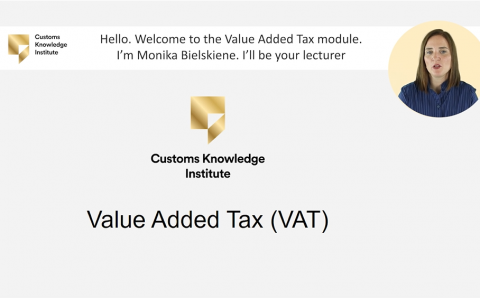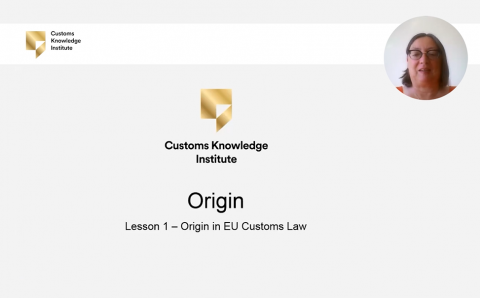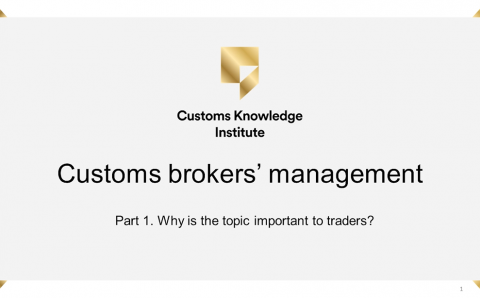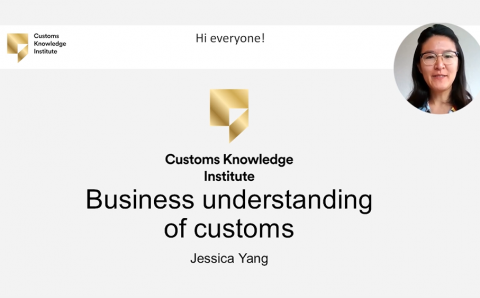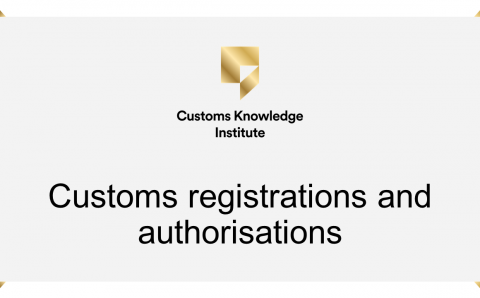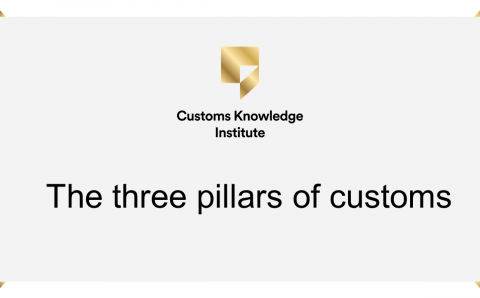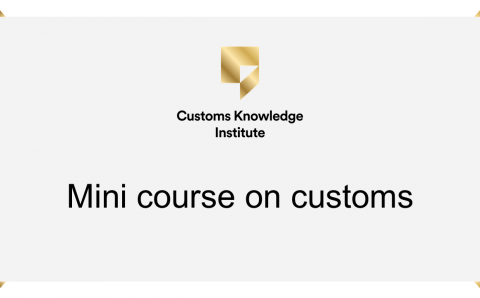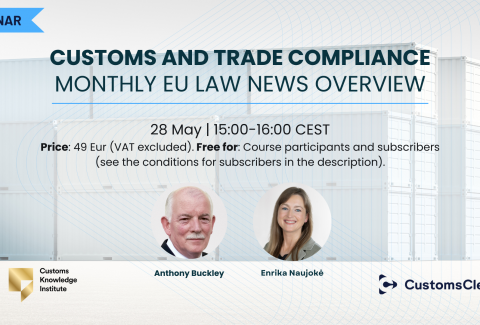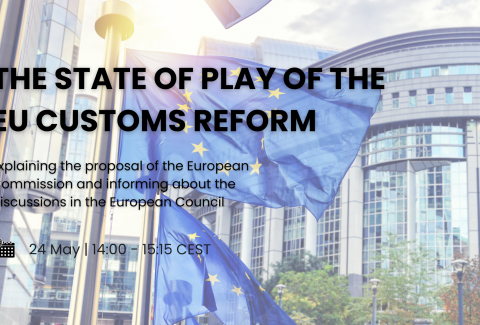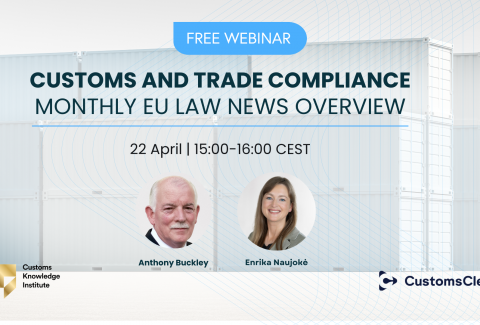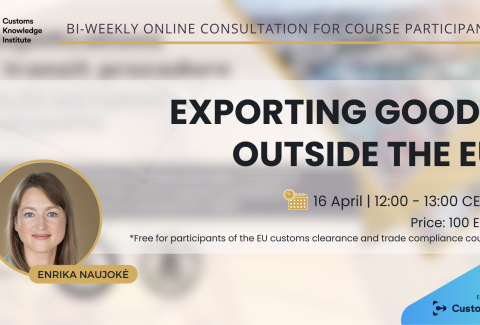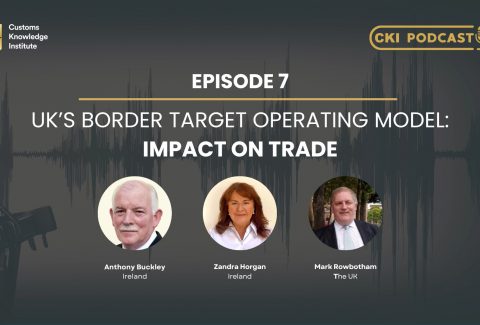Importer’s knowledge to claim preferential treatment: is it a gift or a trap?
2021-09-29 2022-08-16 13:21Importer’s knowledge to claim preferential treatment: is it a gift or a trap?

Importer’s knowledge to claim preferential treatment: is it a gift or a trap?

Jessica Yang
Director, JY XBorder Consulting Ltd.
In the article “Importer’s knowledge to claim preferential treatment: is it a gift or a trap?”, published in Customs Compliance & Risk Management journal, Jessica Yang shares her insights on some of the common traps that businesses fall into when it comes to claiming preferential treatment.
Trade agreements (e.g. EU-UK Trade and Cooperation Agreement (TCA)) allow businesses to claim preferential treatment when goods meeting certain conditions are imported into a signatory country. Used correctly, they can be an effective way to manage the amount of customs duty payable.
Determining whether or not preferential treatment can be claimed is a two-step process. First, the preferential origin of the good must be checked. Then, the preferential origin must be evidenced so that preferential treatment can be claimed correctly upon import.
Trade agreements have their own unique rules of origin to determine whether something has a preferential origin. They also each have their own rules on how preferential origin should be evidenced. This can be confusing when a business is using multiple trade agreements.
The focus of this article is on a particular method of evidencing preferential origin: importer’s knowledge. This is a relatively new concept in the EU, first appearing in the EU-Japan Economic Partnership Agreement, replicated in the UK-Japan Comprehensive Economic Partnership Agreement (CEPA), and now contained in the EU-UK TCA.
But what exactly is an importer’s knowledge? And what type of business should be considering using it (or avoiding it)?
Misconceptions
Importer’s knowledge allows the importer to claim preferential treatment based on their own knowledge about the originating status of imported goods. This is where the misconceptions begin to appear. The devil is in the details: what does “knowledge about the originating status” mean?
Let’s take the EU-UK TCA as an example. If a business wants to claim preferential treatment under this agreement, either the exporter can make a statement on origin, or the importer can claim it using the importer’s knowledge.
Here are two traps businesses should avoid.
Trap #1 Relying on the importer’s knowledge without the appropriate evidence from the exporter. When a business cannot get a statement on origin from the exporter before importing (perhaps because the EU exporter has no REX), it may be tempting to use the importer’s knowledge. However, it is not sufficient to claim preferential treatment merely because the importer believes that the goods are of preferential origin. It is more appropriate to think of the exporter’s statement on origin and importer’s knowledge as two sides of the same coin. The coin represents the information (e.g. suppliers’ declarations, supporting documents, manufacturing records, transport route, etc.) needed to evidence that the product qualifies as originating. HMRC produced a non-exhaustive list of information required for the UK-Japan CEPA, it illustrates the level of details required. Furthermore, unless the importer and the exporter are related, due to commercial sensitivity, exporters may not want to share the necessary information with the importer for the importer to use the importer’s knowledge, rendering this unfeasible option.
Trap #2 Using the importer’s knowledge without having sufficient evidence as an interim solution to avoid paying customs duties, then changing the import to a claim made on a statement on origin issued after the import was made. Once the importer selects to claim preference using importer’s knowledge, it is not possible to “change path” and claim preferential treatment using a statement on origin from the exporter issue later, especially when customs authorities challenge the use of importer’s knowledge and that a statement on origin was not available at the time of import. As such, it may be better to pay the customs duty and reclaim it once a statement of origin becomes available. In certain circumstances, if the importer by mistake claimed the importer’s knowledge, provided conditions are met, it is possible to amend the customs declaration.
Even if a product has a preferential origin, if the importer has incorrectly claimed the preferential treatment, they may be trapped by their mistake and permanently lose the opportunity to claim preferential treatment on that shipment.
Benefits
For certain types of business set-ups, an importer’s knowledge is a gift. These businesses are typically experienced users of trade agreements, where the importer and the exporter are related parties. Here are two scenarios where an importer’s knowledge is a gift.
Gift #1 Moving own stock, or importing from a related party. Importer’s knowledge is claimed upon import by populating the customs declaration in a certain way. Where the importer is moving its own stock which it has manufactured in another signatory country to the trade agreement, the importer’s knowledge can simplify the process of claiming preferential treatment. Similarly, where the importer is related to the exporter and they share the same systems and sources of information, the importer can extract what they require prior to import without input from the exporter.
Gift #2 Wanting to engage with the domestic customs authority only during an audit. When the importing country’s customs authority questions the preferential treatment claim, if the claim is made by using a statement on origin, the customs authority can seek support from the exporting country’s customs authority to verify the statement on origin. However, if preferential treatment is claimed by using the importer’s knowledge, engaging with the exporting country’s customs authority is not an option. In this case, the discussion is solely one between the importer and the importing country’s customs authority. Depending on the view of the business, this may be a preferred option.
Importer’s knowledge is a great addition to the set of tools available to policymakers to include in trade agreements going forward. Nevertheless, it appears that the importer’s knowledge’s target audience is narrow, limited to businesses with certain set-ups.
What next?
Businesses planning to use trade agreements should pay attention not only to check the origin of the goods but also ensuring that the preferential treatment is claimed correctly. Strengthening customs broker management can also help to reduce errors.
The field of customs is very niche, but the subfield of trade agreements and origin is even more so. Businesses can consult the guidance published as well as materials available on CustomsClear website. If in doubt, engaging a customs advisor early on is highly recommended.
Further reading
Related Posts
Proving preferential origin in EU and UK | Podcast, Episode 8
Online consultation: Customs formalities when importing goods into the EU
Customs and Trade Compliance | Monthly EU law news overview: June 2024
Online consultation: Release for free circulation in the EU
Monthly EU law news overview: May 2024
The State of Play of the EU Customs Reform
CKI and CONFIAD forge partnership with Memorandum of Cooperation
Customs and Trade Compliance | Monthly EU law news overview: April 2024
Online consultation: Exporting goods outside the EU
UK’s Border Target Operating Model: Impact on trade – Podcast, Episode 7
Search
Recent News
- Proving preferential origin in EU and UK | Podcast, Episode 8
- Online consultation: Customs formalities when importing goods into the EU
- Customs and Trade Compliance | Monthly EU law news overview: June 2024
- Online consultation: Release for free circulation in the EU
- Monthly EU law news overview: May 2024

